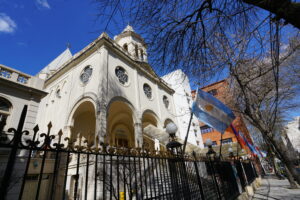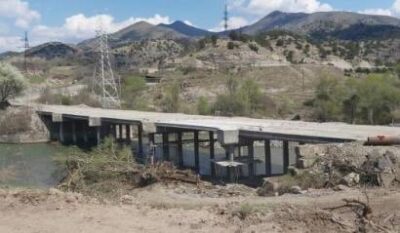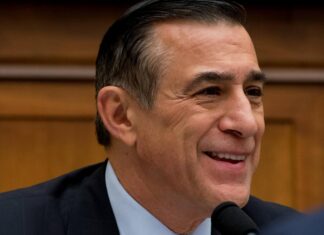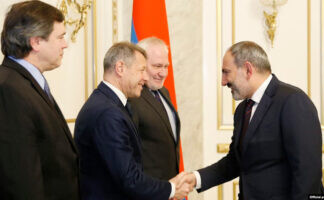By Artak Khulian
YEREVAN (Azatutyun) — Ten days after blocking the movement of humanitarian convoys through the Lachin corridor, Azerbaijan allowed the International Committee of the Red Cross (ICRC) on Sunday, June 25, to resume the evacuation of seriously ill persons from Nagorno-Karabakh to Armenia.
“We resumed yesterday the transfer of patients to Armenia through the Lachin corridor,” Eteri Musayelian, a spokeswoman for the ICRC office in Stepanakert, told RFE/RL s Armenian Service on Monday, June 26. “We evacuated 15 patients yesterday and 16 others today.”
Videos released by Azerbaijani government-controlled media showed those patients, family members accompanying them and ICRC vehicles undergoing meticulous checks at an Azerbaijani checkpoint controversially set up in the corridor in April.
According to health authorities in Stepanakert, nearly 190 Karabakh residents were waiting to be evacuated to Armenian hospitals for urgent treatment as of Saturday.
The medical evacuations have been carried out only by the ICRC ever since Azerbaijan stopped last December commercial traffic though the sole road connecting Karabakh to Armenia. Baku blocked them as well as Russian peacekeepers’ food supplies to Karabakh on June 15 following a shooting incident near the Azerbaijani checkpoint.








